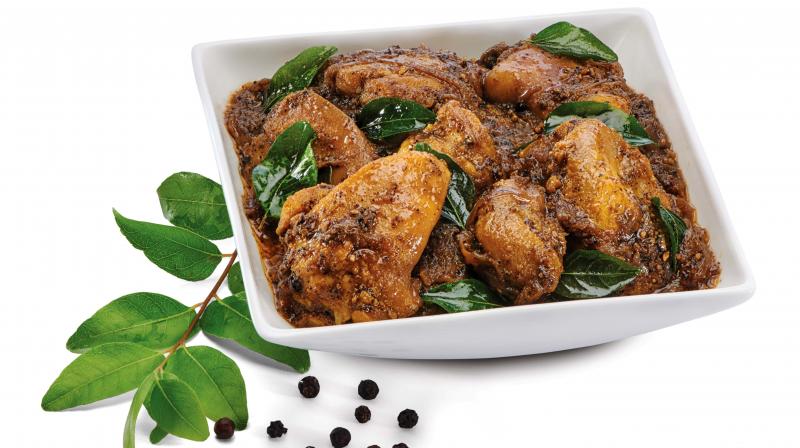Myths about frozen food
There are certain myths that revolve around frozen food which you need to stop believing.

Mumbai: Be it working professional or busy homemakers, today adjusting with the ever running clock is the greatest challenge common to all. The early morning mad rush that digs up the otherwise peaceful wake up routine has eaten up a majority of the ‘healthy’ part of life.
A concerning majority skips breakfast entirely with others popping in street side unhealthy fast-food on the go or a packet of fries. However, although this has sadly become the normal lifestyle today and a andway out seems impossible, the happier part is the availability of innovative, healthy sustainable products in the healthy frozen food category.
Today, office goers and concerning mothers can rely on these safe eats and save their family health yet keeping their busy schedule intact but there is only one hitch to overcome –the myth about packaged frozen food.
MYTH 1: Frozen food is just a frozen lot and only gives convenience
Frozen food brands have much more to offer to a healthy Indian, in terms of variety and wholesomeness. It has gone beyond the traditional freezing methods and has set higher industrial standards. Today, this premium, sustainable and healthy products come with high deliverance in terms of quality, taste and origin of produce and ethical brand practices; it’s a fast growing market now and with a vast scope for growth.
MYTH 2: Farm produce is fresh than frozen packaged food
The usual assumption that what is fresh in the market is better is not true anymore. While fresh items might seem good to the eyes, in reality these actually reach the consumer a good 15-20 days post-harvest date; where nutrition gets destroyed due to pollution, improper storage conditions and slow transit.
However, the frozen food industry’s freezing units are located well within 100 km from its sourcing point. For instance, fresh peas in the Uttaranchal belt can reach the manufacturing unit within few hours only, cleaned and flash frozen at its peak nutritional state before getting stored and transported in a controlled environment (temp maintained below -18 degree C) to prevent enzyme activity that might cause nutritional loss.
MYTH 3: Frozen foods are high on addictives, preservatives, low on nutrition
Freezing as a process involves minimal processing, has high retention of nutrients, taste texture and freshness, making it one of the best and the safest methods of food preservation without any additional preservatives.
Advanced technology like IQF (Individual Quick Freezing), is used for freezing. This technology does not allow large ice crystals to form in vegetable cells, keeping the produce as fresh and nutritious as it was at the time of the first defrost, bringing the goodness of the farm to the consumer’s table.
MYTH 4: All frozen food has high sodium content
Not at all. These are a bunch of low-calorie, low-sodium foods that are filled with vegetables, grains, and lean proteins, perfect for health conscious consumers.
MYTH 5: Cannot re-freeze previously frozen food
Yes, you can refreeze foods that were thawed provided; it is thawed according to package instructions. It also depends on the kind of food, as each one of them have a different composition. It is always ideal to follow the instructions on the pack.
MYTH 6: Frozen food cannot be preserved for long
This is not true. Frozen food can be saved indefinitely as long as it is stored in 0 degree F or below the entire time, says FoodSafety.gov.
The frozen food sector is witnessing large disruptions and is slated to be the next big food space to watch out for. Significant investment in R&D that address a consumer's health and nutrition concerns has introduced frozen packaged products with uniquely combined healthy ingredients like turmeric, millets, methi, lean meats (chicken and seafood) through healthier cooking, opening up options of a new healthy lifestyle quotient for the ever hectic, consumers of today.
*Disclaimer: This article has been contributed by Mithun Appaiah, CEO, Innovative foods Ltd- Brand Sumeru. The opinions expressed within this article are the personal opinions of the author. The facts and opinions appearing in this article do not reflect the views of Deccan Chronicle, and Deccan Chronicle does not assume any responsibility or liability for the same.

